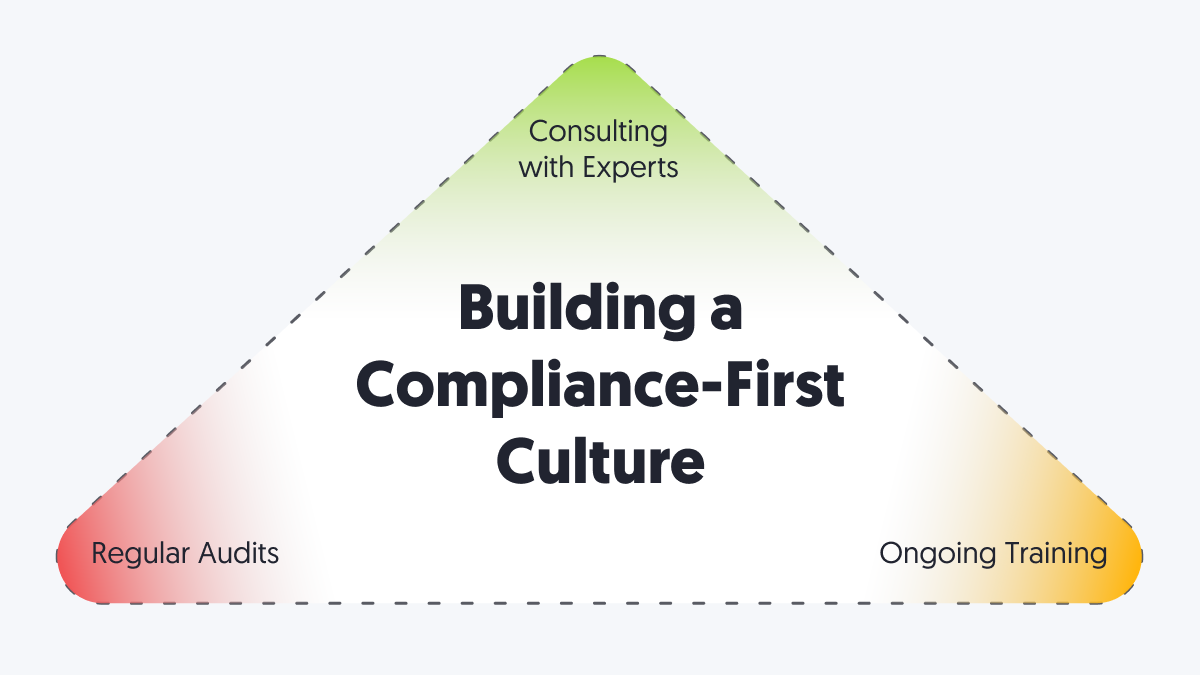
Compliance Challenges in Ad Serving for 2024
As digital advertising evolves, staying ahead in compliance is not just a legal requirement—it's critical for maintaining consumer trust and operational integrity. The introduction of new technologies and tightening regulations in 2024 presents unique challenges, demanding a strategic and well-informed approach. This guide dives deep into these complexities, using data-driven insights to outline effective compliance strategies and technological innovations.
The Importance of Compliance in Digital Advertising
In the fast-paced world of digital advertising, compliance isn’t just a legal necessity—it’s a cornerstone of consumer trust and business integrity. As we head into 2024, the industry faces an increasingly complex regulatory environment, with over 80 countries enacting stringent privacy laws. Staying compliant is no longer about meeting minimum standards but about navigating a dynamic and often fragmented legal landscape.
The Evolving Regulatory Landscape
Global Privacy Laws and Their Impact
In 2024, the digital advertising sector must adhere to a patchwork of international laws, such as the General Data Protection Regulation (GDPR) in the European Union and the California Consumer Privacy Act (CCPA) in the United States. These regulations are not static; for instance, GDPR fines have increased by 40% as enforcement has tightened Source.

Compliance methodologies such as ISO certifications or SOC2 Type 2 reports are critical, as they provide structured compliance processes that are internationally recognized. These frameworks help organizations systematically manage and secure data, demonstrating a commitment to data protection that is vital for operational transparency and integrity.
Consumer Consent and Data Management
Enhanced consumer awareness has elevated expectations for data privacy. Technologies that facilitate transparent and user-friendly management of consumer consents are crucial. The IAB Europe's Transparency and Consent Framework (TCF) standardizes the communication of privacy preferences across the advertising supply chain, ensuring that consumer consents are respected and handled uniformly.
Technological Innovations and Compliance
The Role of AI and Machine Learning
Artificial intelligence (AI) and machine learning (ML) are reshaping how companies tackle compliance. These technologies help predict and mitigate potential compliance violations before they occur. For example, AI-driven algorithms can now aid in real-time monitoring of ad placements to ensure they do not breach regional laws—a crucial development given that ad content that was compliant one year may not be the next due to regulatory changes. So, how organizations can leverage this is still a question that remains unanswered.
Blockchain for Enhanced Transparency in Digital Advertising
Blockchain technology brings unmatched transparency to advertising transactions, allowing all involved parties to verify compliance independently. This innovation not only builds trust but also streamlines the reconciliation process between advertisers and publishers.
At its heart, blockchain provides immutable records, transparent operations, and secure transactions, paving the way for a digital advertising environment where every impression, click, and conversion is traceable and verifiable, mitigating issues of fraud and lack of transparency. Yet, the question remains: How can such sophisticated technology be effectively implemented in the marketing sector? Furthermore, what practical actions can companies take to effectively incorporate blockchain into their digital advertising strategies.
Overcoming Compliance Challenges
Implementing streamlined ad-serving processes and unified platforms for consumer consent management can significantly reduce compliance-related disputes and improve operational efficiency. For example, integrating blockchain to provide a consistent and transparent record of consumer consent across different markets can decrease disputes by up to 30%.
Strategic Solutions and Best Practices
Leveraging Compliance Tools
Advanced compliance software that includes features like real-time data scrubbing and compliance status dashboards is critical for minimizing human error and maintaining compliance across diverse markets. These tools enhance compliance efficiency and help organizations adapt to regulatory changes promptly and effectively.
EU-US Privacy Shield and Data Transfers
While the EU-US Privacy Shield framework has been invalidated, understanding the current mechanisms for transatlantic data transfers is crucial. Organizations must explore alternative legal bases for data transfers, such as Standard Contractual Clauses (SCCs), and ensure their data handling practices comply with the latest regulatory requirements.
Building a Compliance-First Culture
To effectively manage compliance risks, companies must foster a culture prioritizing regulatory adherence as a fundamental aspect of business operations. This involves regular training, strategic planning, and continuous improvement. Best practices include:

Regular Audits: Ensuring all systems and campaigns are reviewed semi-annually to prevent compliance drift.
Ongoing Training: Keeping the workforce informed about the latest in compliance regulations and technological tools.
Consulting with Experts: Engaging regularly with legal experts specialized in ad tech to stay ahead of potential legal challenges.
Looking Forward in Ad Compliance for 2024
As we look toward the future of digital advertising, it is clear that compliance will continue to be a critical focus area. Proactively adapting to these challenges through advanced technology, informed strategies, and robust operational practices is essential. By embracing a proactive compliance strategy, firms will not only protect themselves against legal risks but also enhance their reputation and build stronger relationships with consumers.